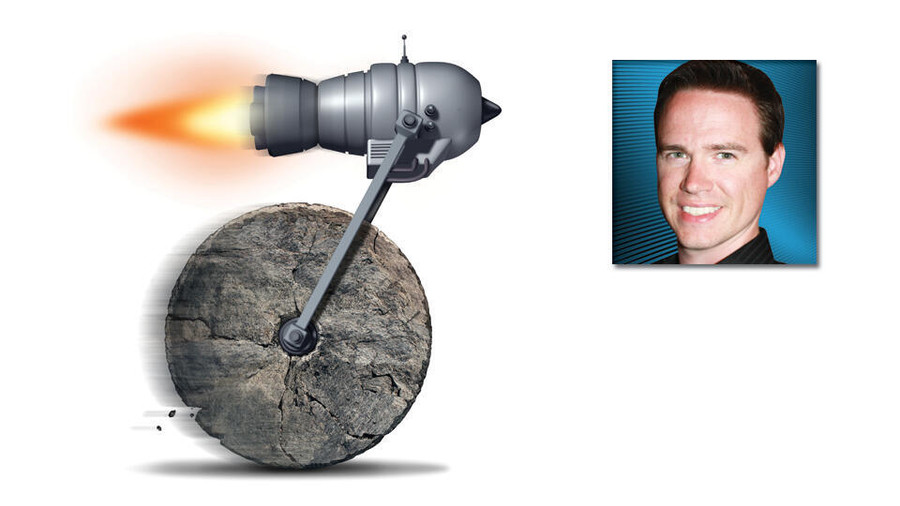So, you’ve decided to take the plunge with your most recent business idea. What now? Knowing how to get to where you want to go is essential, and that path winds through the many life stages of a business. Depending on the founder and the industry, each stage can take years, but experienced founders can leapfrog things ahead exponentially.
Research Mode
Businesses often adapt and evolve until they no longer resemble what they originally were at the start. Getting your product/market fit (PMF) right — and adjusting it as needed — is crucial.
In the beginning is the lightbulb moment, the idea. Ideas happen all the time, and most of them are bad. It is always exciting when you initially come up with an idea for a business, but within 24 or 48 hours, that honeymoon phase is typically already over as problems and hurdles come to light. The main criteria to consider are: whether the business could be big enough, the barriers to entry and the competitive landscape. The ideas that survive this initial research phase get additional attention and research to determine if they’re worthwhile. Some entrepreneurs will jump in, while others will spend months or years in thinking and research mode.
The Decision
A decision is made to pursue or not to pursue. Will you take the leap or go after something else? The decision to go forward is a critical moment because that’s when it starts costing money, time and energy. For the ideas that survive, this is usually the time to begin researching domain names, business names and brand names, planning how the business would operate, determining costs and budgets, and talking to potential customers.
Some people get very secretive during this period. They avoid sharing their idea, fearing someone else will steal it, and often demand that people sign NDAs before talking to them. Yet while people do sometimes steal ideas, most people are too busy with their own projects to steal yours — and by keeping it secret, you may also lose out on free and often valuable feedback from people you trust.
Validation
It will usually take time to build the business, gain traction and validate your ideas and strategy. Success will depend on how you execute your plan and build the company, and how people find your product. Stealth-mode development may take years, and perhaps you never have to announce it publicly. Maybe you’ve built a software or business solution custom-tailored for your pre-existing business, before realizing it could prove to be valuable to others. Either way, there will hopefully come a moment when your business takes off. I usually know if I have a winner within one to three years, when things start to move with a life of their own.
Adaptation
Businesses often adapt and evolve until they no longer resemble what they originally were at the start. Getting your product/market fit (PMF) right — and adjusting it as needed — is crucial. Things will change as the business’s needs change, like how software being actively developed is never “completed” and always has ongoing development costs.
For example, my business was initially built to sell advertising on my network of websites. Text ads were Google’s bread and butter at the time, but since porn is a visual product, we displayed banner ads instead. After a few friends used it for a while, it was launched publicly, but then the product changed. Initially, I operated my own paysites and advertised them in all spots; only when someone else bought an ad spot would it change to something else. So, publishers set their own ads initially. When we introduced run-of-network campaigns and required at least a 25% rotation of “filler ads,” some publishers revolted. Not everyone takes well to innovative change. Networkwide ads are now the industry standard.
Scale
With consistent momentum, traction and adaptation, your company is ready to scale. You turn the marketing engine on full blast, hire more salespeople and execute based on your systems. This is how a business becomes a stable and established company. Beware of the impulse to scale before being profitable. It is one thing to have a good PMF, but you need a path to profitability before attempting to scale, unless the math shows that scaling is your path to profitability. Scaling a business that doesn’t work on a small scale will often accelerate its failure, with rising costs and no way to pay for them.
Acquisition Strategy According to Life Stages
After you’ve made it through these stages and want your company to grow faster, you can accelerate it with acquisitions as the big buys do. When acquiring and buying websites and businesses, you want to focus on purchasing in the later life stages; after all the initial work is done, the company has traction and is scaling. Bypassing businesses in the early stages is advisable because they are the riskiest and most expensive, and where more than half of business failures occur.
If you are still interested in buying a business in the early stages, such as one that has been built but has yet to launch — and therefore has no revenues or sales yet — do your due diligence very carefully. You will want to make sure that this business fits your vision and offers a concrete way to fast-track your goals, because it would likely be just as cost-effective to rebuild it yourself from scratch.
While there are never any guarantees, by anticipating the stages listed above, and proactively ensuring that your business evolves at a steady pace and progresses through those stages, you can definitely improve your odds for long-term success.
Juicy Jay is the CEO and founder of the JuicyAds advertising network, as well as the founder of Broker.xxx, which helps people buy and sell adult websites and businesses. He also provides executive consulting, business strategy and marketing services at Consulting.xxx.







